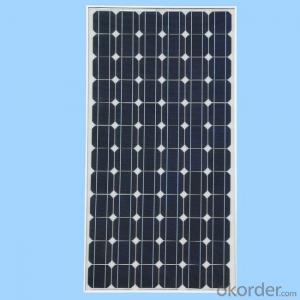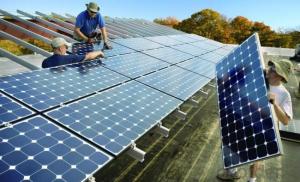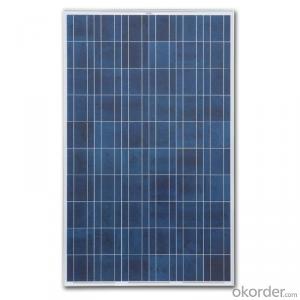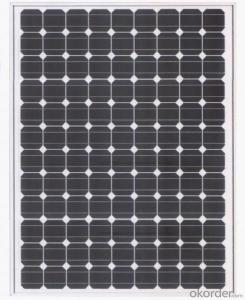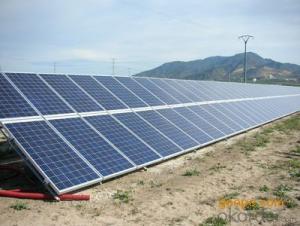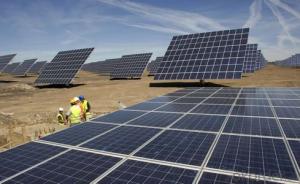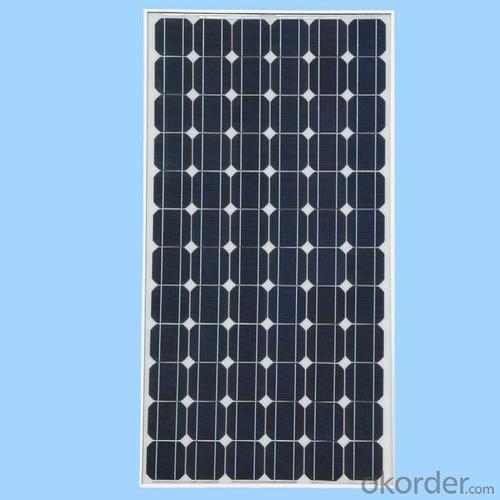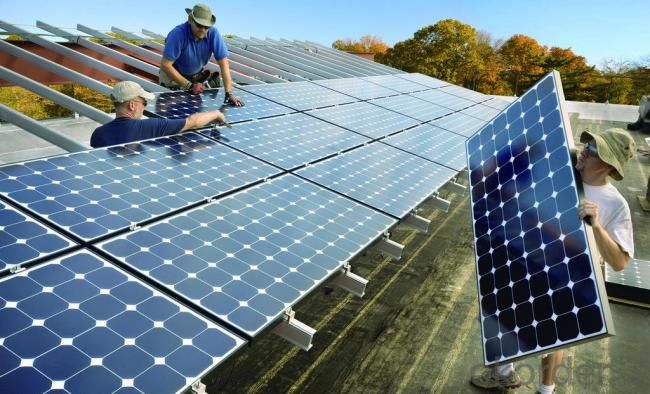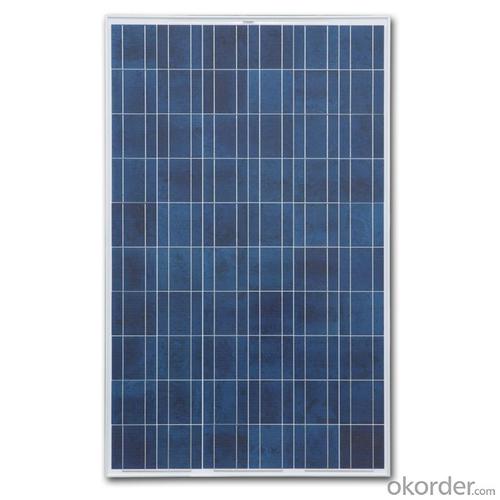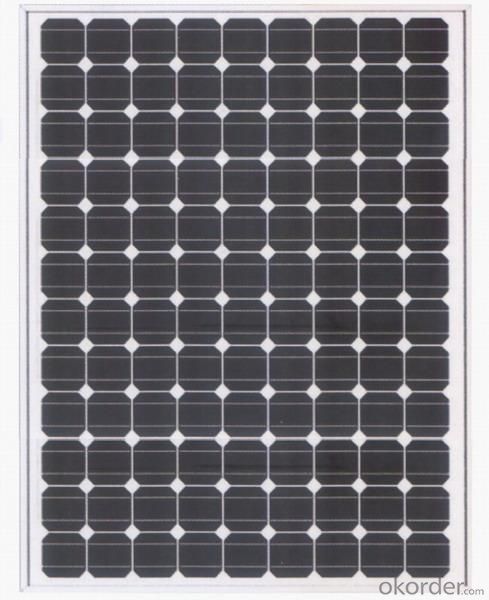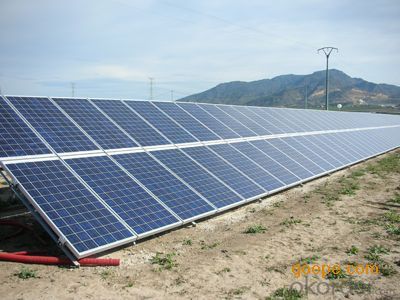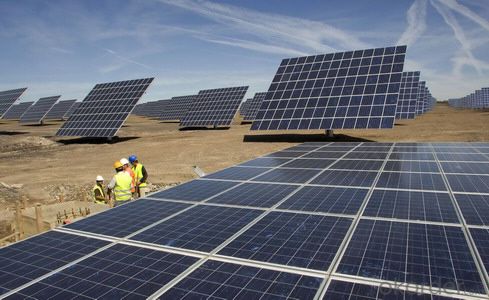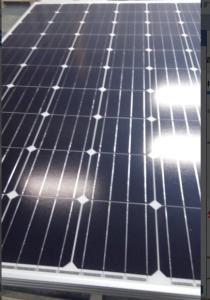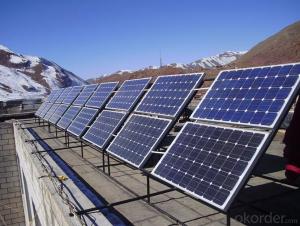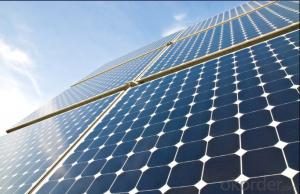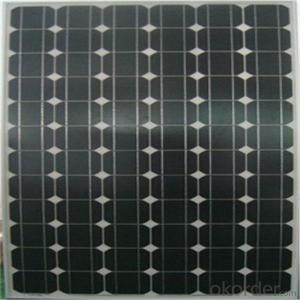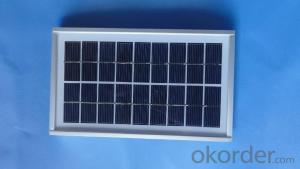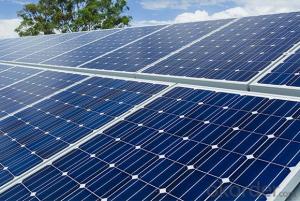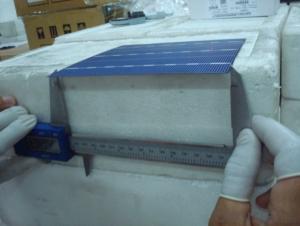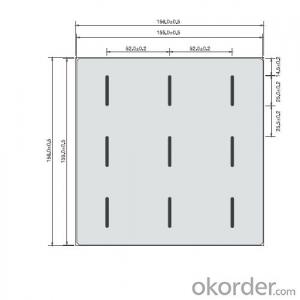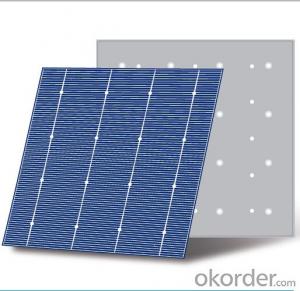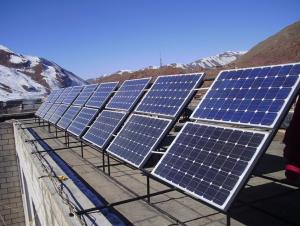Gallium Arsenide Solar Cells for Sale - CNBM Mono Crystalline Silicon Solar Modules
- Loading Port:
- Shanghai
- Payment Terms:
- TT OR LC
- Min Order Qty:
- 11 watt
- Supply Capability:
- 111111 watt/month
OKorder Service Pledge
OKorder Financial Service
You Might Also Like
1.Structure of Solar Module Description
The solar module is an off-gird solar power generator, designed to provide stable and reliable electricity to homes and communities without access to grid electricity or to those regions where are short of power or even without power. The solar module is convenient to move, easy to set-up with reliable performance, making it ideal for situations where emergency power is required. It is an ideal & reliable energy source for a wide variety of applications, ranging from lighting , radios, fans ,televisions ,computers ,refrigerator. The USB port is compatible with all 5V-USB charged devices. It can also act as a back-up power source during emergency situations.
2.Main Features of the Solar Module
1).High conversion efficiencies resulting in superior power output performance.
2).Outstanding power output even in low light or high temperature conditions
3).Optimized design for ease of soldering and lamination
4).Long-term stability,reliability and performance
3.Solar Module Images
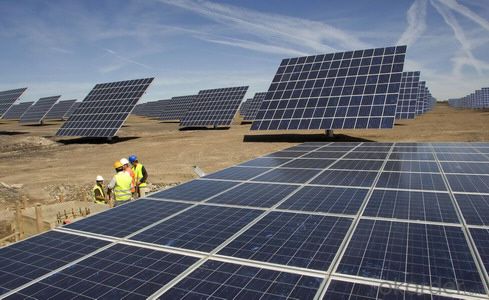
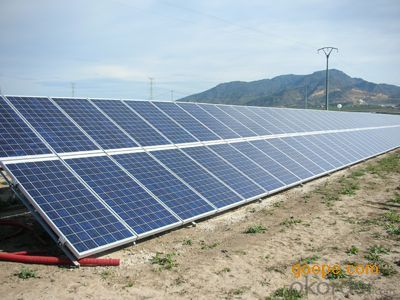
4.Solar Module Specification
| Monocrystalline solar module | ||||||||
| Model No | Power(W) | Module Size(mm) | Vmp(V) | Imp(A) | Voc(V) | Isc(A) | Master Carton size(mm) | Weight(N.W/kgs) |
| YG-NZ10 | 10 | 350x280x18 | 18 | 0.59 | 21.4 | 0.73 | 370x300x120 | 1.5 |
| YG-NZ15 | 15 | 296x400x18 | 18 | 0.88 | 21.4 | 1.02 | 316x420x50 | 2 |
| YG-NZ20 | 20 | 550x345x25 | 18 | 1.17 | 21.4 | 1.31 | 570x365x60 | 2.5 |
| YG-NZ30 | 30 | 520x520x25 | 18 | 1.75 | 21.4 | 1.89 | 540x540x60 | 3 |
| YG-NZ35 | 35 | 2.04 | 21.4 | 2.18 | ||||
| YG-NZ40 | 40 | 530x670x35 | 18 | 2.45 | 21.4 | 2.59 | 550x690x80 | 4.5 |
| YG-NZ45 | 45 | 2.62 | 21.4 | 2.76 | ||||
| YG-NZ50 | 50 | 2.91 | 21.4 | 3.05 | ||||
| YG-NZ60 | 60 | 770x670x35 | 18 | 3.49 | 21.4 | 3.63 | 790x690x80 | 6 |
| YG-NZ65 | 65 | 3.77 | 21.4 | 3.91 | ||||
| YG-NZ70 | 70 | 1000x530x35 | 18 | 4.07 | 21.4 | 4.21 | 1020x570x80 | 8 |
| YG-NZ80 | 80 | 1200x550x35 | 18 | 4.66 | 21.4 | 4.8 | 1220x570x80 | 9 |
| YG-NZ90 | 90 | 5.24 | 21.4 | 5.38 | 1220x570x80 | 9.5 | ||
| YG-NZ100 | 100 | 1070x680x30 | 18 | 5.82 | 21.4 | 5.96 | 1090x700x70 | 8.5 |
| YG-NZ120 | 120 | 1480x660x35 | 18 | 6.98 | 21.4 | 7.12 | 1500x680x80 | 12 |
| YG-NZ135 | 135 | 7.85 | 21.4 | 7.99 | 1500x680x80 | 12.5 | ||
| YG-NZ150 | 150 | 1480x680x35 | 18 | 8.73 | 21.4 | 8.87 | 1500x700x80 | 13 |
| YG-NZ180 | 180 | 1580x808x40 | 36 | 5.22 | 40.32 | 5.36 | 1600x828x90 | 18 |
| YG-NZ220 | 220 | 1630*990*40 | 36 | 6.38 | 40.32 | 6.52 | 1650x1010x90 | 19 |
| YG-NZ230 | 230 | 1632*986*40 | 36 | 6.67 | 40.32 | 6.81 | 1652x1006x90 | 19 |
| YG-NZ260 | 260 | 1946*986*50 | 36 | 7.54 | 40.32 | 7.68 | 1966x1006x110 | 23 |
5.FAQ of Solar Module
1). Q: Are you a factory or trading company?
A: We are a factory.
2). Q: Where is your factory located? How can I visit there?
A: Our factory is located in Jiangyin, Jiangsu, China, near Shanghai. You are warmly welcomed to visit us!
3). Q: How can I get some samples?
A: Please connect me for samples
4). Q: Can the price be cheaper?
A: Of course, you will be offered a good discount for big amount.
- Q: How many years should I spend in the solar cell industry to be a good solar cells sales person?
- A good solar cells should be equiped with both solar cells knowledge and good sales skills, and with very good people skills. Only in this way, you will be a good one.
- Q: What is the role of tracking systems in maximizing solar cell efficiency?
- Tracking systems play a crucial role in maximizing solar cell efficiency by continuously adjusting the position of solar panels to optimize their exposure to sunlight. These systems enable solar panels to track and follow the sun's path throughout the day, ensuring that they are always facing directly towards the sun. By doing so, tracking systems can enhance the amount of sunlight captured by solar cells, resulting in increased energy production and overall efficiency.
- Q: Can solar cells be used in remote sensing devices?
- Yes, solar cells can be used in remote sensing devices. Solar cells are capable of converting sunlight into electricity, making them an ideal power source for remote sensing devices that require continuous operation in areas where traditional power sources are unavailable or impractical to use.
- Q: Do solar cells work in cloudy weather?
- Yes, solar cells can still generate electricity in cloudy weather, although their efficiency may be reduced compared to clear, sunny conditions.
- Q: How long do solar cells last?
- Solar cells typically have a lifespan of around 25 to 30 years, but with proper maintenance and care, they can continue producing electricity for even longer.
- Q: What is the impact of snow accumulation on solar cells?
- Snow accumulation on solar cells can have a negative impact on their performance and efficiency. When snow covers the surface of the solar panels, it prevents sunlight from reaching the cells, thereby reducing their ability to generate electricity. Additionally, the weight of the accumulated snow poses a risk of damaging the delicate solar cells or the entire panel structure. Therefore, it is important to regularly clear the snow from solar panels to ensure optimal energy production and prevent any potential damage.
- Q: Can solar cells be recycled?
- Yes, solar cells can be recycled. The process involves separating and recovering valuable materials like silicon, silver, and aluminum from the cells. This not only reduces waste but also allows for the reuse of these materials in the production of new solar cells.
- Q: Can solar cells be used for powering remote medical clinics?
- Yes, solar cells can be used for powering remote medical clinics. Solar energy is a reliable and sustainable source of power, particularly in areas where access to the electricity grid is limited. By installing solar panels, remote medical clinics can generate their own electricity, ensuring a continuous power supply for essential medical equipment, lighting, refrigeration, and other critical healthcare needs. This enables the provision of quality healthcare services in remote areas without relying on traditional energy sources.
- Q: How do solar cells handle power fluctuations?
- Solar cells handle power fluctuations through a process called maximum power point tracking (MPPT), which optimizes the output power of the cell. MPPT algorithms continuously monitor the voltage and current of the solar cell and adjust the load resistance to ensure that the cell operates at its maximum power point, even in the presence of fluctuations in solar irradiance or temperature. This allows solar cells to efficiently convert sunlight into electricity and adapt to changing environmental conditions.
- Q: Can solar cells be used in electric vehicle charging stations?
- Yes, solar cells can definitely be used in electric vehicle charging stations. Solar panels can be installed on the roof or surrounding area of the charging station to harness sunlight and convert it into electricity. This renewable energy source can then be used to charge electric vehicles, making the charging process more sustainable and reducing dependence on the grid.
Send your message to us
Gallium Arsenide Solar Cells for Sale - CNBM Mono Crystalline Silicon Solar Modules
- Loading Port:
- Shanghai
- Payment Terms:
- TT OR LC
- Min Order Qty:
- 11 watt
- Supply Capability:
- 111111 watt/month
OKorder Service Pledge
OKorder Financial Service
Similar products
Hot products
Hot Searches
Related keywords
